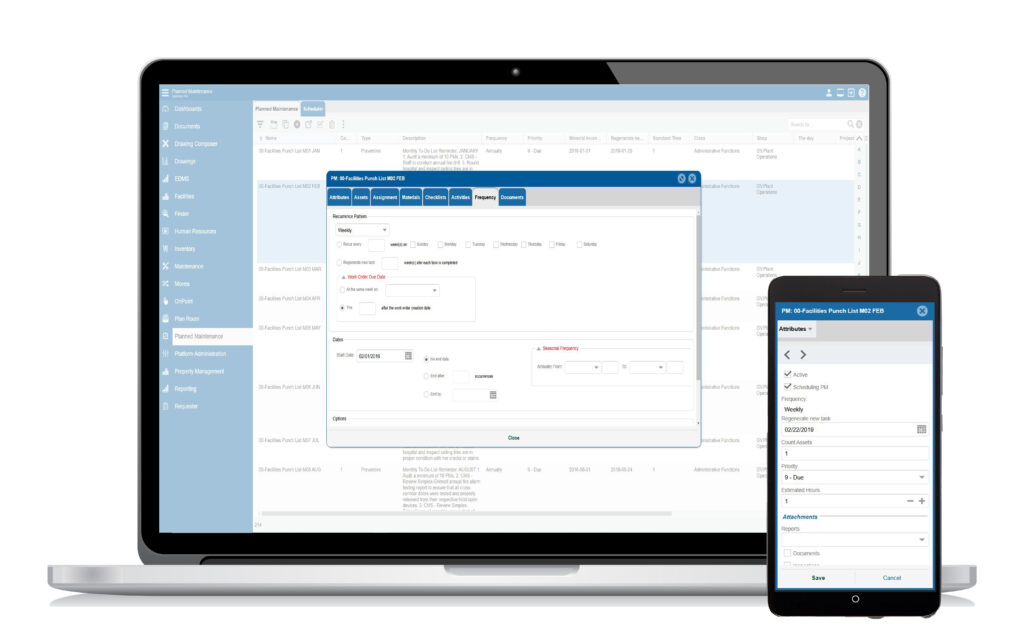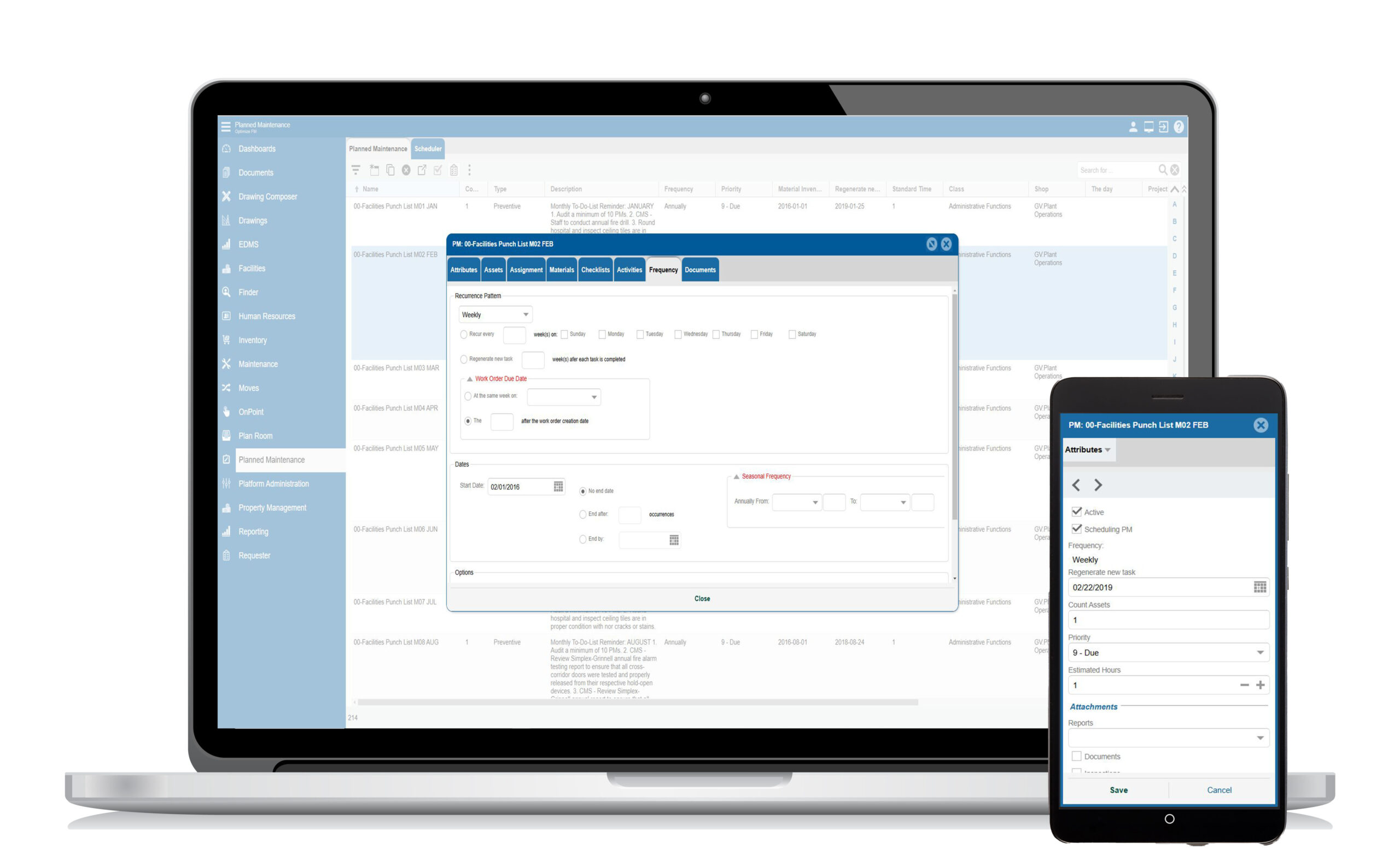Here are the functional capabilities of the Evolve FM Planning and Scheduling module:

- Planning. Provides for detailed planning of the craft labor, materials, special equipment, and other resources needed to complete a work order. Permits developing specific job steps with the type of craft labor and estimated times. Allows for scheduling of the work order when all planned resources are available. Evolve FM Planning functions are part of the work order module.
- Work-order search. Provides search of work-order files based on specific criteria such as priority code or “request date” to support building a schedule. Select prioritized work-order tasks for scheduling.
- Craft scheduling. Supports the ability to assign estimated labor hours by a craft for work-order tasks assigned to a specific crew and shift or a specific individual.
- Schedule review. Provides review of schedule to check the status of tasks and others.
- Individual assignment review. Provides review of work that has been assigned to individuals. Personal notes may be added by individuals to specific tasks.
- Shift turnover log. Provides for making notes to support turnover of scheduled work from one shift to the next shift supervisor or craftsperson.
- Job plan. Creates work order job plan and includes resources: crafts, material, equipment, or contract services. Copies materials requirements directly off the spare parts list/bill of materials for equipment. This includes matching craft job skills to the job requirements to ensure craft qualifications are being met for the job.
- Job plan requisitions. Automatically creates purchase requisitions or orders for contract services included on the job plan.
- Job plan documents. Attaches drawings, specifications, procedures, permits, and other documents to the job plan and specifies which documents should be printed out with the job packet.
- Job plan print. Generates a work order job plan to a local printer.
- Work order scheduling. Work orders created, planned, approved, scheduled, worked, progressed, completed, and transferred to history.
- Establish job plan steps. Establishes and provides an online view of an existing work order job plan by individual job steps.
- Work order steps. Associates a work-order step with specific equipment, craft supervisor, estimated time and standard time, list of tasks, tools, and special equipment. In addition, associates work. order step with resources, parts requisition, work order bill of materials, routes, and checklists, safety documents, material costing, measurements, and labor costing.
- Work order job plan entry/update. Enters a new job plan or updates an existing job plan from job plan templates.
- Craft resource availability. Determines craft hours and type craft availability internal and contract) as compared to craft hours required for a specific planning period. Provides a quick reference to the availability of other resources required for the plan.
- Craft resource leveling. Provides visibility of the current backlog that is ready to be scheduled and the capability for leveling of craft labor over a specific planning period or handling of exceptions to the plan.
- Material status. Provides status of material requests for planned work orders or work-order steps. May include material forecasting features and generation of future demand and automatic requisitioning of necessary parts/materials.
- Craft skills and qualifications. Provides matching of planned tasks with the skills and/or qualifications required for the job. This would typically be linked to a crafts personnel module as part of CMMS or to an enterprise system human resources database or a training management system.
- Daily maintenance schedule. Produces a daily maintenance schedule by craft area, lines, and the like including PMs, lube services, and PaM data collection that can be performed at regular predetermined intervals by craftspeople. It may also include planned tasks performed by operators.
- Craft capacity leveling. Schedules work orders against known labor availability to ensure fully effective craft redeployment, labor utilization, and craft leveling to include contractors.
- Schedule compliance. Provides a method to monitor to what degree the schedule is being adhered to, based on work planned/scheduled versus actual execution of planned work.


